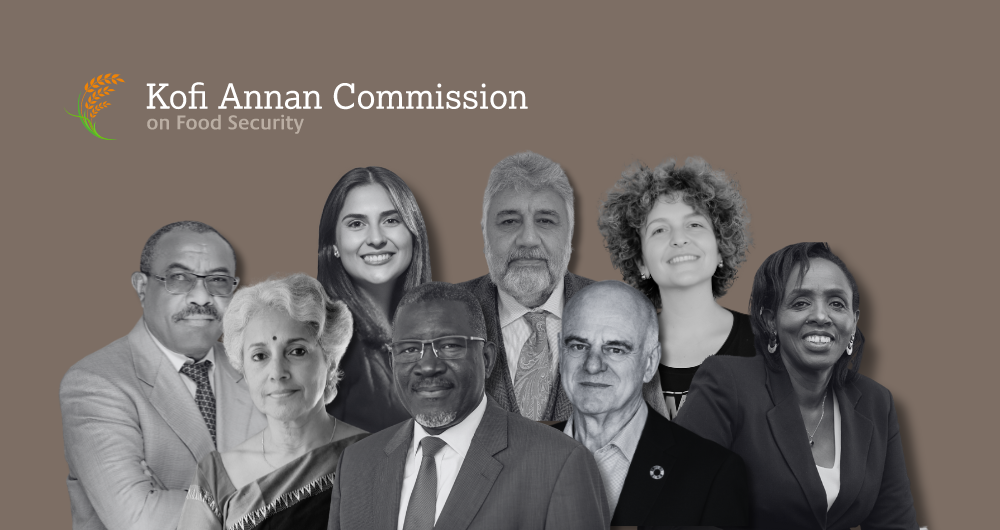Kofi Annan : Africa’s potential depends on deepening democracy and strengthening institutions
Kofi Annan will urge Africans to avoid complacency about the continent’s bright future as he delivers the third annual Desmond Tutu International Peace Lecture.
News Release | 7 October 2013
Kofi Annan will urge Africans to avoid complacency about the continent’s bright future as he delivers the third annual Desmond Tutu International Peace Lecture.
University of Western Cape, South Africa – In a keynote address today, Kofi Annan will say that remarkable changes have occurred across Africa in the past half-century, and acknowledge that rarely has there been such optimism about the continent’s future. However, he will state that significant challenges such as climate change, youth unemployment, and terrorism remain, and he will urge leaders and citizens not to become complacent about the future.
In the lecture, which will mark the birthday of Archbishop Desmond Tutu, Mr. Annan will describe the strategies needed to build societies which are strong, cohesive, and enable every individual to thrive and live in dignity.
Mr. Annan will argue that sustainable peace depends on deepening democratic practice and building effective institutions that are grounded in the rule of law and respect for human rights. He will identify four priorities:
• Reject the zero sum approach to politics: “We must turn our backs on the ‘winner takes all’ approach to politics which has been so damaging to our continent. We have seen how this has led to abuses of power by the winner and encouraged losers to reject democracy as a peaceful means for change.”
• Improve electoral integrity: For an election to have integrity “it must be based on the democratic principles of universal suffrage and political equality, and must be professional, impartial, and transparent in its preparation and throughout the electoral cycle.” “When conducted with integrity, elections bolster democracy, promote development, and produce governments which are more likely to represent their citizen’s interests.” “Sadly, elections in Africa can become a trigger for conflict rather than a peaceful way to regulate competition for political power.”
• Uphold the rule of law and combat impunity “I am surprised to hear critics ask whether the pursuit of justice might obstruct the search for peace. Justice is not an impediment to peace but a partner.” “In adopting the Rome Statute, the international community courageously tipped the balance away from impunity in favour of justice. I was proud that so many African countries, where judicial systems are weak and divisions run deep, provided such strong support for the Court. I am therefore concerned by recent efforts to portray the Court as targeting Africa. I know this is not the case… It is the culture of impunity and individuals who are on trial at the ICC, not Africa.”
• Better manage the diversity within African societies: “Societies which embrace diversity as a source of strength become healthier, more stable and prosperous. In those which do not, whole communities can feel marginalized and oppressed, creating conditions for conflict.” “Appropriate laws and institutions are needed to manage differing needs and interests and to protect the rights of each individual.” “Much can be achieved through education, and mechanisms at the community level can be effective by promoting dialogue.”
Mr. Annan will also draw attention to the worryingly high tolerance for violence which exists in many parts of Africa: “Violence towards those who are different from us, or who we disagree with is unacceptable, and has no place in healthy societies. We have to learn from each other, making our different traditions and cultures a source of harmony and strength.”
Mr. Annan will call on leaders to be active in promoting justice, praising Archbishop Tutu as a role model. He says: “There is a crucial role here for Africa’s religious leaders in promoting tolerance and understanding of our common humanity. We need them, at every opportunity, to denounce violence, and discrimination, including on the grounds of gender and sexuality.”
Mr Annan will emphasise the importance of educational institutions in encouraging and empowering young people, especially young women, to take a leading role in bringing positive change and peace to future generations on the continent.
– Ends –
Notes to Editors
Kofi Annan served two terms, from 1997 to 2006, as UN Secretary-General. In 2001, Kofi Annan and the United Nations were jointly awarded the Nobel Prize for Peace. Since leaving the United Nations, Kofi Annan has established a Foundation which aims to promote better global governance and strengthen the capacities of people and countries to achieve a fairer and more secure world. To advance this mission, the Foundation has developed programmes and partnerships in three main focus areas: (i) Peace and Security; (ii) Sustainable Development; and (iii) Human Rights and the Rule of Law.
For media inquiries, including a full embargoed copy of the speech, please contact: media@kofiannanfoundation.org
+41 22 919 75 57



